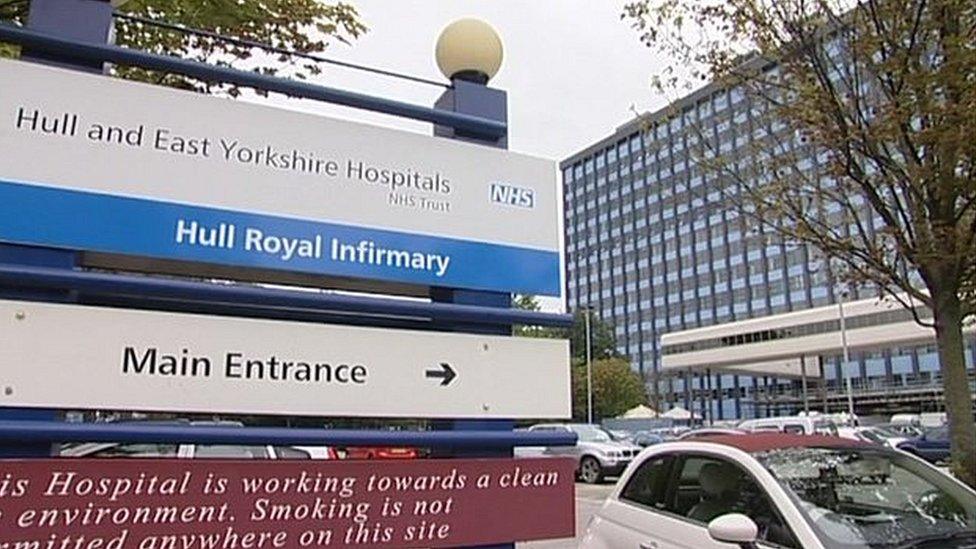Hull Royal Infirmary: People urged to avoid A&E for non-urgent issues
- Published

Hull Royal Infirmary has urged patients with non-urgent conditions to use alternative services
A hospital has urged people to avoid A&E for non-urgent conditions, warning it is under "significant strain".
Hull Royal Infirmary said it had seen very high numbers of people attending the department, resulting in lengthy waits.
In a statement on Thursday, it urged people to use alternative services such as urgent treatment centres.
Staff said that would enable them to focus on those patients who were critically ill or seriously injured.
Professor Makani Purva, chief medical officer at Hull University Teaching Hospitals NHS Trust, said the issues could be seen at both entry and exit points.
She said: "I've been in the NHS for over 20 years and I've never seen a situation like what we're facing today.
"Normally, we'd have such pressures only in December and January, peak Winter."
She added: "Demands on hospital care are as high as they have ever been right now, with large numbers of people attending for walk-in care, high numbers of people requiring admission, and a high number of people who are ready for discharge, but unable to leave until the right community support is in place."
The trust was working with the NHS and local authority partners to create extra capacity, but that took time, Professor Purva said.
"So, we're also reviewing what non-urgent activity we have taking place and whether moves such as staff redeployment may help to ease the pressure."
She said staff were doing "a great job" but added the community could help by using alternatives to A&E.
"Not only will this be quicker and usually more convenient for them, it will also be a huge support to our emergency care staff, ward staff and partners in the ambulance service right now," Professor Purva said.

Follow BBC East Yorkshire and Lincolnshire on Facebook, external, Twitter, external, and Instagram, external. Send your story ideas to yorkslincs.news@bbc.co.uk, external.